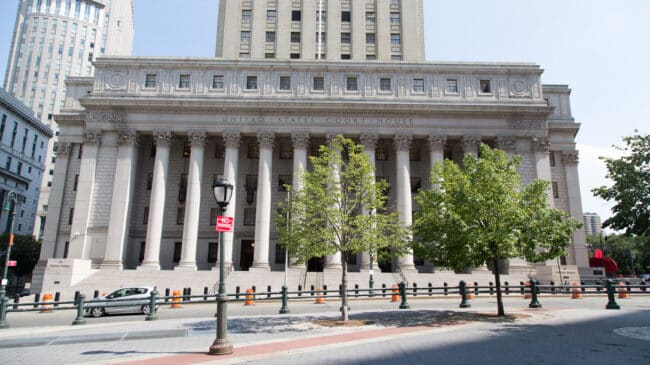In 34 states, people can have their driver’s licenses suspended, revoked, or banned from renewal due to a failure to pay fines, fees, and other debts accrued in the criminal justice system, often for issues unrelated to traffic violations and driving. For many people, losing a driver’s license often means losing the ability to do basic tasks such as go to work, grocery shop, or take kids to school. In fact, because 86 percent of Americans drive to work, these unnecessary driver’s license suspensions restrict people’s ability to work and pay their court-sanctioned debt, creating an often inescapable cycle of poverty.
Suspending driver’s licenses is a largely arbitrary and regressive form of punishment that does not improve roadway safety and does not prevent future crimes. Across the country, more than one-third of all driver’s license suspensions are due to non-highway offenses. And out of those individuals with suspended driver’s licenses, more than two-thirds of them committed another non-highway-related offense.
These suspensions don’t keep people off the roads. The National Cooperative Highway Research Program, Report 500, estimated that around 75 percent of individuals chose to drive with a suspended license. This is due, in part, to the fact that there are few if any, alternative modes of transportation in most non-urban areas that would allow them to continue to work and care for their family. But, by doing so, these individuals risk further criminal charges or even incarceration.
Communities of color are disproportionately affected by driver’s license suspension policies, as they are ticketed, charged, and convicted at higher rates. Studies using data from New York, New Jersey, and California suggest that a majority of individuals arrested for driving with suspended licenses in those states are black or Hispanic.
License suspension is largely seen as an inefficient or even cruel punishment for the poor, and some states are fortunately beginning to pursue reform to these regressive policies. New York, Arkansas, Washington, Arizona, and Nevada passed legislation in 2021 to curb unnecessary license suspensions.
New York’s Driver’s License Suspension Reform Act (DLSRA) recently reformed the state’s policy of suspending licenses for unpaid traffic fines and fees. When individuals are required to appear in court for unanswered traffic summons, appearance tickets, or missed traffic hearings, the law adds an additional notification for drivers before their license is suspended. Under the law, driver’s license suspensions will be lifted if they appear in traffic court or enter a payment plan.
As of June 29, 2021, driver’s licenses that were suspended for unpaid traffic fines and fees in New York state were reinstated and installment payment plans were established for all traffic fines, fees, and mandatory surcharges. The DLSRA mandated payment plan is the greater amount of 2 percent of the individual’s net monthly income or $25 a month to pay off traffic fines and fees over time.
Currently, in Arkansas and Washington, courts are able to revoke, suspend, or not renew driver’s license or registration when individuals fail to make a payment or make arrangements for the payment. But both states recently adopted legislation requiring courts to order a hearing on the non-payments, and only when the individual fails to appear at the hearing is the suspension enacted. In Washington, the law does not go into effect until January 2023, but the state recently added an order requiring the Department of Licensing to stop suspending licenses and reinstate suspended licenses for unpaid traffic tickets for non-criminal violations.
In Arizona, Senate Bill 1551 was recently adopted to end driver’s license suspensions and restrictions for failure to pay a civil penalty, surcharge or assessment for civil traffic violations, such as parking tickets. Driving privileges will also be reinstated for individuals who failed to pay civil traffic violations. Additionally, the bill allows judges to change the fees at their discretion if the individual faces financial hardship. This legislation is expected to restore the licenses of roughly 30,000 citizens in the state.
Similarly, Nevada’s Senate Bill 219 ended the practice of suspending individual driver’s licenses or prohibiting individuals from applying for driver’s licenses as the result of any delinquent fine, administrative assessment, fee or restitution owed. As of October 1, 2021, the Nevada Department of Motor Vehicles will immediately reinstate the driver’s license of a person or allow them to apply for the issuance of their license if they were subject to punishment for delinquent fine, administrative assessment, fee, or restitution owed.
These recent reforms to driver’s licenses suspensions and fees in New York, Arkansas, Washington, Arizona, and Nevada are steps in the right direction. The laws will help tens of thousands of people regain their driving privileges, maintain employment, and pay their traffic fines. Driver’s license suspensions due to non-highway offenses have too many collateral harms and don’t further justice. Traffic debt is also strongly correlated to race and poverty. But with over half the states still suspending driver’s licenses for reasons unrelated to the safety on the road, there is still a long way to go.

